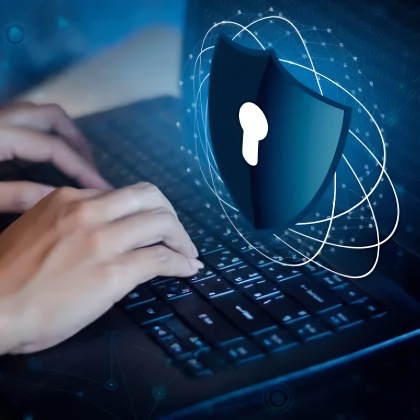
Remote work has become an integral part of today’s professional landscape, offering flexibility and convenience to both employees and employers. However, with this shift away from traditional office environments comes a new set of cybersecurity challenges that cannot be ignored.
In this article, we’ll explore some of the most significant cybersecurity concerns associated with remote work. From phishing attacks to unsecured home networks, understanding these risks is the first step toward protecting your business and personal information.
Increased Risk of Phishing Attacks
With employees accessing company data from various locations, phishing attacks have become more prevalent. Cybercriminals exploit the lack of face-to-face verification and the informal communication channels often used in remote work setups.
Remote workers may receive emails that appear legitimate but are designed to steal sensitive information or install malware. The impersonation of trusted contacts or institutions makes these attacks particularly effective.
To mitigate this risk, it’s essential for remote employees to be vigilant about suspicious emails and to verify requests for sensitive information through secondary channels. Implementing strong email security measures can significantly reduce the likelihood of successful phishing attempts.
Vulnerabilities in Home Wi-Fi Networks
Home Wi-Fi networks are typically less secure than corporate networks, making them a prime target for cyber threats. Weak passwords and outdated encryption protocols can expose valuable company data to unauthorized access.
Remote work cybersecurity heavily depends on the security of these personal networks. An unsecured network can be exploited by attackers to intercept data, deploy malware, or gain entry into company systems.
Ensuring that home routers are configured properly, using strong passwords, and keeping firmware up to date are crucial steps. Employees should be encouraged to use Virtual Private Networks (VPNs) to add an extra layer of security when accessing company resources.
Use of Personal Devices and Shadow IT
Remote workers often use personal devices for work-related tasks, which may not have the same level of security as company-issued equipment. This practice increases the risk of data breaches and unauthorized access.
Additionally, employees might use unapproved software or applications, known as Shadow IT, to facilitate their work. These tools might not comply with organizational security policies and can introduce vulnerabilities.
To address these issues, companies should establish clear policies regarding device usage and software installations. Providing secure, company-approved tools and ensuring that personal devices meet security standards can help mitigate these risks.
Inadequate Remote Access Security
Accessing company networks remotely can open doors for cyber threats if not properly secured. Weak authentication methods and lack of encryption can make it easier for attackers to infiltrate systems.
Remote access security implications for businesses are significant. Without robust measures like multi-factor authentication and encrypted connections, sensitive data is at risk.
Implementing strong authentication protocols and using secure remote access solutions are vital. Regularly reviewing access logs and monitoring for unusual activity can also help in early detection of potential breaches.
Lack of Employee Cybersecurity Training
Employees play a critical role in maintaining cybersecurity, especially when working remotely. Without proper training, they may not recognize threats or understand best practices for protecting company data.
The transition to remote work can lead to gaps in communication and oversight, making it more challenging to enforce security policies. This lack of awareness can result in inadvertent security lapses.
Investing in regular cybersecurity training for employees can empower them to act as the first line of defense. Educating staff about the cybersecurity implications for remote working environments is essential for building a resilient security posture.
In Conclusion
Remote work offers many benefits but also introduces significant cybersecurity challenges that must be addressed proactively. By understanding and mitigating risks like phishing attacks, unsecured networks, and inadequate training, businesses can better protect their assets and information.
Our team in Southlake, TX is dedicated to helping businesses navigate these complexities. If you’re looking to enhance your remote work security measures or have questions about safeguarding your company, contact us for a free quotation on our cybersecurity services.
Mike Young is a cybersecurity expert with over 15 years of experience. As the leader of Cyber Craft Networks in the Dallas/Ft. Worth area, he specializes in fortifying businesses against digital threats. Mike’s commitment to excellence ensures comprehensive IT support and advanced cybersecurity solutions for businesses of all sizes.
